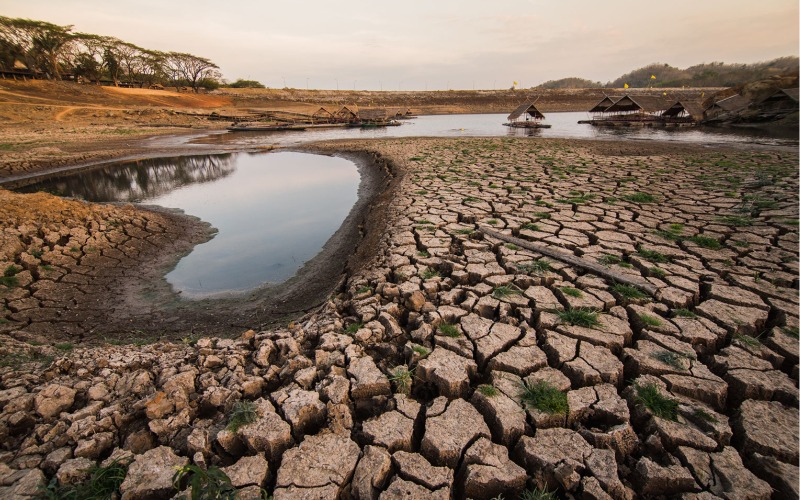
by Jon Reese
The world is getting warmer. The Earth’s hottest year was 2016 and, according to a May 2023 forecast from the World Meteorological Organization, it’s almost guaranteed that at least one of the next five years will break that record and that the period from now until 2027 will be the warmest ever recorded. “This will have far-reaching repercussions for health, food security, water management and the environment,” Petteri Taalas, the WMO’s secretary general, said.
How do you react to that prediction? Notice how your body reacts to the news. You might detect a hitch in your breathing, a tightening in your chest, a clenched jaw, or some other response. Just note your physical experience.
Now, see if you can name the emotion that accompanies your physical reaction. Is it despair, fear, anger, disbelief, denial? Or maybe some combination of these? Pause to notice your experience of the emotions. Refrain from pushing them aside. Instead examine your experience with curiosity, just as you would a museum piece.
You may see your mind cranking up, ready to offer up villain and victim narratives or to pass judgment on leaders’ inability to enact policies that might reverse such warming. Recent headlines about extinctions or climate refugees or flooding may trigger a sense of dread. Your emotional response, and the thoughts that support it, might include distrust, rejection, or denial. Confronted with such a monumental global conundrum, human thinking tends to spiral in complexity, feeding overwhelming emotions and even prompting the desire to tune out.
“Physical sensations, emotions, and thinking move together so quickly that our experience can feel quite solid,” Carol Hyman writes in Meeting Your Mind. “In order to interrupt the momentum of our conditioning, we have to create some space, to engineer a gap.
“Actually we don’t engineer it,” she continues, “because the gap is always there, we just don’t notice it when we’re full speed ahead.”
When the world seems to be going full speed ahead, the gap can help us see how we solidify our views about it. Mindfulness practice does not change circumstances, but it can radically change our reactions. Giving ourselves the space to listen to our bodies and to observe our emotions before, or even after, the racing mind takes over engenders flexibility, so we can respond skillfully.
If we believe in interbeing – that we are all connected – and we aspire to help this world, then our practice is to discern what is ours to do to relieve the suffering of others. In the midst of this climate crisis, our mindful witness and wise action can help us navigate with equanimity. As the climate heats up, the warmth of compassion may be one of our best resources.
